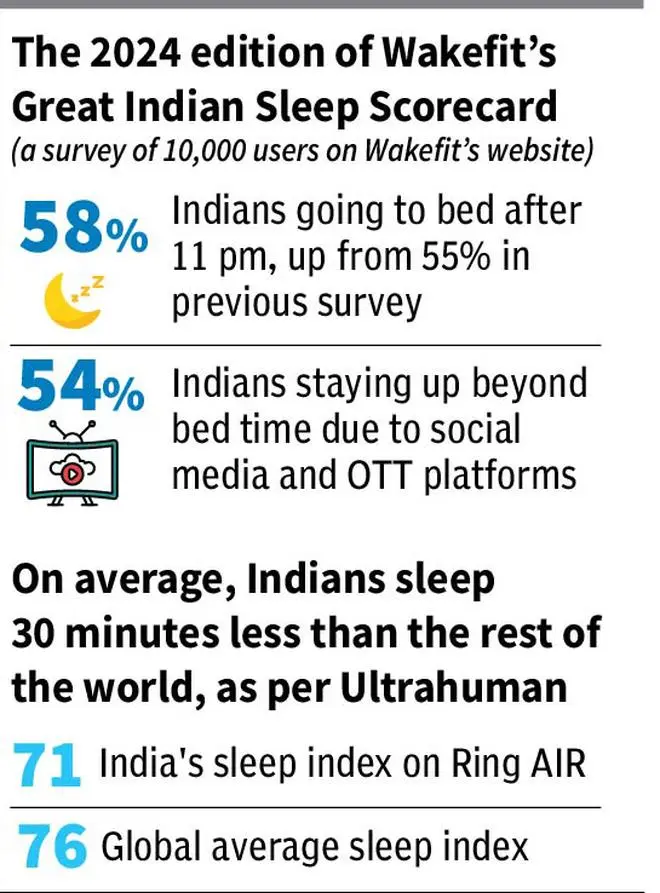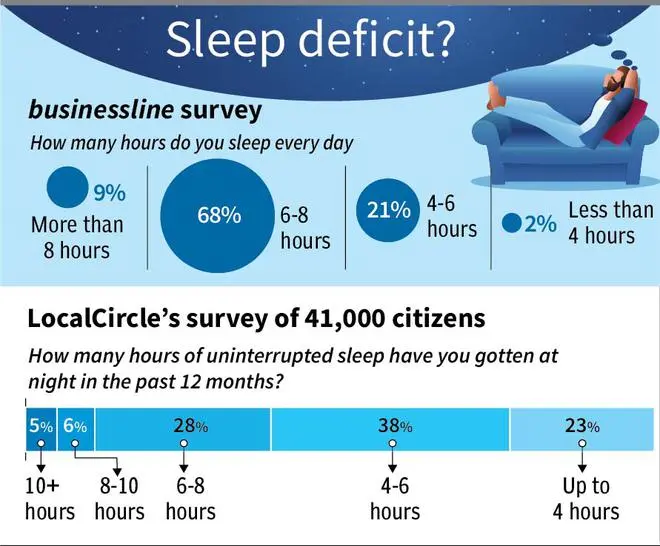Like any debt, sleep debt too can catch up on you making it difficult to make up for the deficit. As Prime Minister Narendra Modi remarked at a recent public event, sleep is the casualty, as people make time for professional and personal goals.
This is borne by surveys shared with businessline on World Sleep Day. A majority of Indians seem to be sleeping an average six-seven hours when they should be getting a good eight-hour sleep.

The Great Indian Sleep Scorecard, a survey of 10,000 respondents by Wakefit on their website, shows 58 per cent went to bed after 11 p.m. on a daily basis compared with 55 per cent in the previous year. Further, 88 per cent reported using their phones just before bedtime - a metric that stood at around 62 per cent during 2019. A city-wise analysis shows that Mumbai, Delhi and Kolkata lead when it comes to people staying up beyond the ideal bedtime. Work pressures seems to be causing late nights for 33 per cent in Chennai, Gurugram and Hyderabad, the highest among all other cities.

Ultrahuman’s wearable ring ‘Ring AIR’ offers people health indicators such as sleep durations, eye movement, heart rate variability, skin temperature, and other factors. As per data analysed by Ultrahuman for its Indian users, India’s sleep index on the Ring AIR is at 71 compared with the global average of 76. Indians also sleep 30 minutes less than the rest of the world and also tend to fall asleep 30 minutes later than others, Ultrahuman said.
A survey with around 260 respondents run by businessline on its website showed that 68 per cent get six-eight hours of sleep every night and one-fifth (22 per cent) get between four and six hours.

Similarly, community platform LocalCircles surveyed over 41,000 citizens across 309 districts and found that 61 per cent got less than six hours of uninterrupted sleep at night in the last 12 months. This proportion has risen from 50 per cent in 2022.
Awareness needed
Experts note that as boundaries between day and night get blurred in today’s globalised world, there is a need for large-scale awareness on sleep health. Dr HN Mallick, president of the Indian Society for Sleep Research, says sleep is the third pillar of good health along with nutrition and exercise, and a good sleep improves productivity and also reduces risk of various health disorders. “We look down upon people who sleep; we must respect sleep and not neglect it,” he says.
Wakefit’s study showed that 48 per cent of individuals aged 18 to 30 (Generation Z) went to bed post 11 p.m., and also report scrolling aimlessly on their phones late at night, leading to poor quality of sleep.






